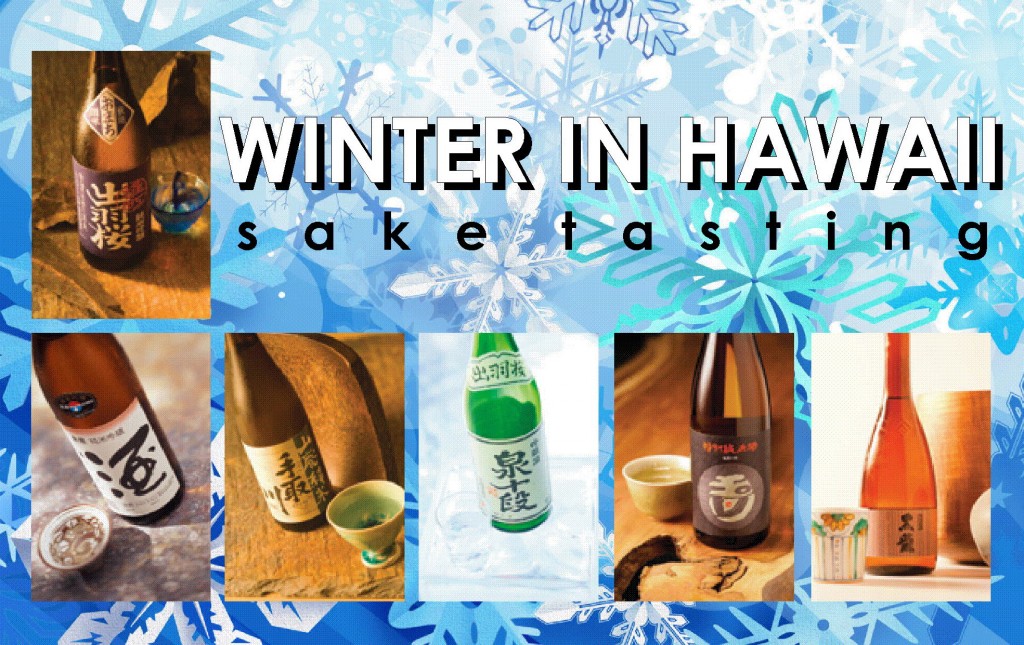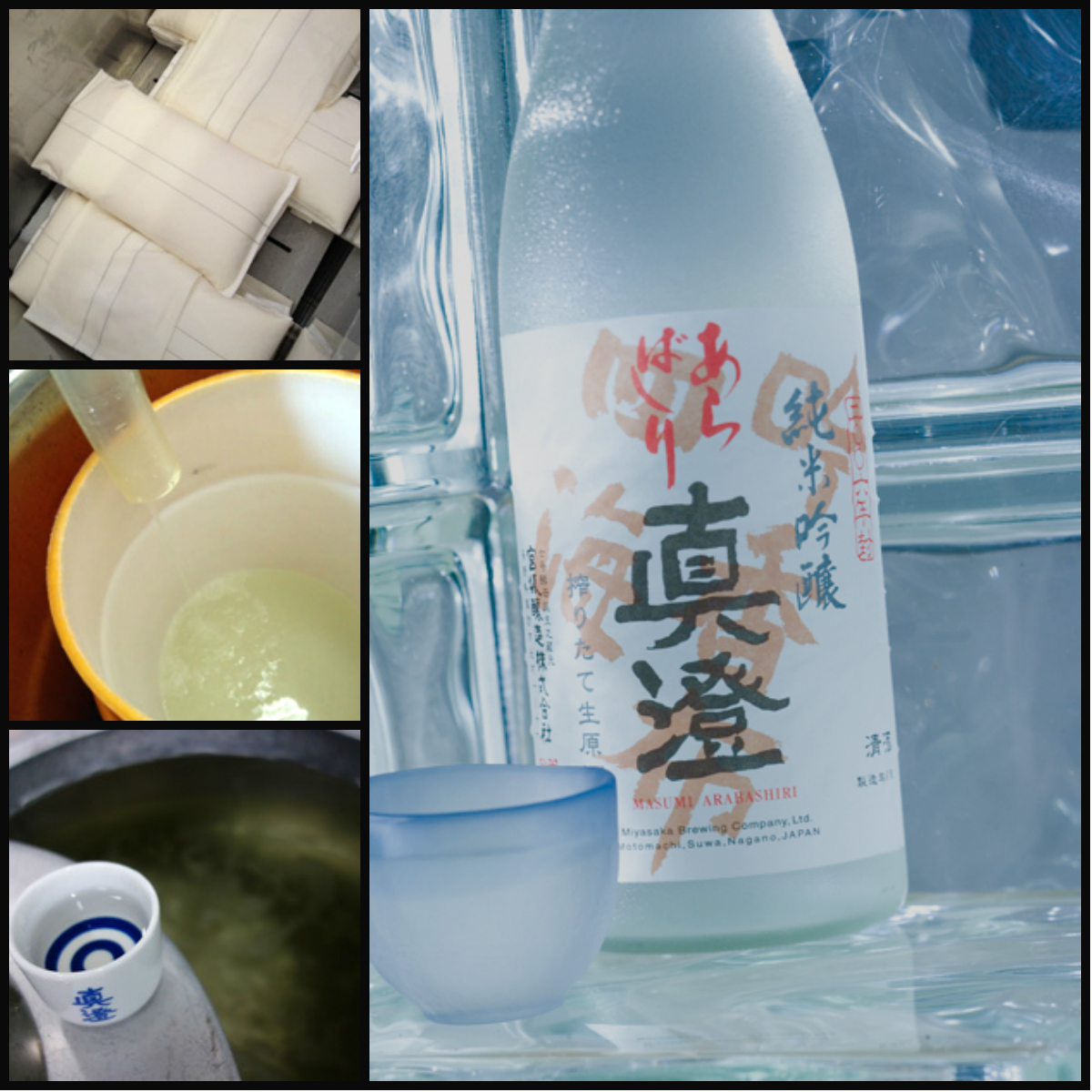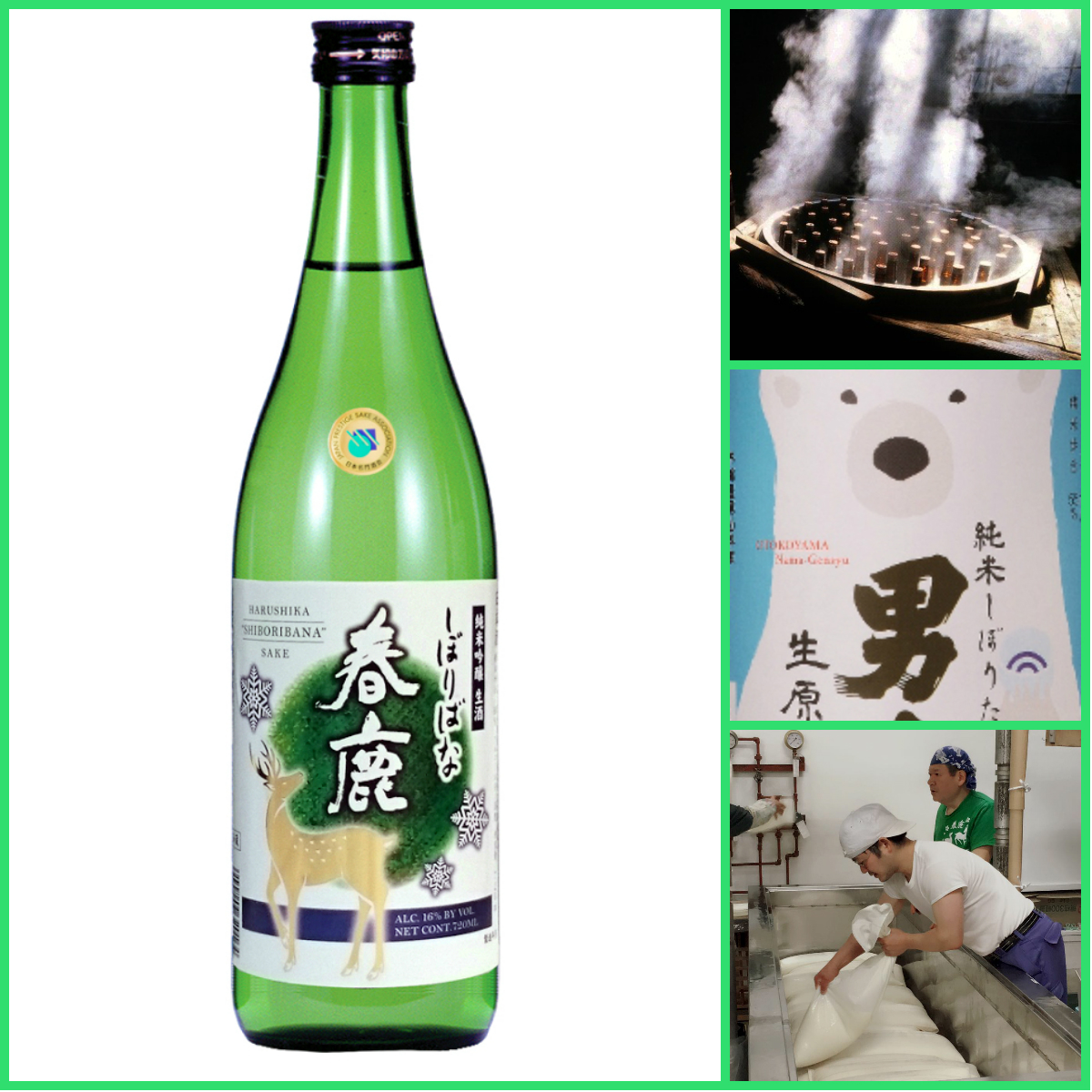BRRRRRR! Winter is almost upon us in Hawaii. Time to break out the winter clothes, put the snow tires on the car and crank up the furnace at home. In fact, was that snow I saw falling today?
Okay, okay, maybe it doesn’t get that cold here in Hawaii and it’s only November, but this Saturday it’s going to beWINTER at the shop! Why will it be winter you ask? Because nothing goes better with winter than WARMsake, and this Saturday there’ll be a whole lot of warm sake being poured at the shop.
Yoshi from World Sake Imports has been wanting to do a warm sake tasting for a while now, and this Saturday he’ll get his wish as he pours for you SIX different sake both cold and WARM!
We’ll try and set the mood by blasting the air conditioner on high and hope for cold weather that day. If everyone helps out by using their imagination I’ll think we’ll be just fine.
WINTER IN HAWAII
COMPLIMENTARY SAKE TASTING & SALE
Saturday, November 26, 2011
2:00pm to 7:30pm
Here is the lineup for this Saturday.

KAMOIZUMI SHUSEN
“THREE DOTS”
Junmai
A wild card in the sake deck. Kamoizumi has a woodsy, forest-floor aroma of fall leaves and mushrooms. There is a lot to explore in this big-boned sake which is best enjoyed warm.

TEDORIGAWA
“SILVER MOUNTAIN”
Yamahai Junmai
One of Nadine’s favorites, this is a connoisseur’s sake that is dry, sharp and smooth all in one. Its mild astringency, a characteristic of sakes made using the old Yamahai method, is balanced by a faintly discernible sweetness.

TAMAGAWA
“HEART OF OAK”
Tokubetsu Junmai
Signature junmai release from British brewmaster Philip Harper. Nutty and toasty with a wild berry zing, this full-throated evocation of junmai delight is in a class by itself. Richly flavorful, yet crisp-drinking and always balanced.

DEWAZAKURA IZUMI JUDAN
“TENTH DEGREE”
Ginjo
A martini lover’s sake, dry and clear with a hint of juniper reminiscent of Tanqueray. No other ginjo combines dryness (+12 on the SMV scale) and edginess (36 proof) to such exhilarating effect.

DEWAZAKURA OMACHI
“JEWEL BROCADE”
Ginjo
Made from Omachi rice, the ancestral strain from which virtually all sake-brewing rices are descended, with a luscious aroma and ornate flavor that deepens and mellows on the palate.

KOKURYU
“BLACK DRAGON”
Junmai Ginjo
Kokuryu has the imposing presence of sakes brewed in the Noto Toji style of Western Japan. It’s deeply mysterious flavor seems to come from the earth itself: rich, dynamic and welcoming.
So please join us this Saturday for our Winter in Hawaii Sake Tasting. Warm or cold, I’m sure there will be something that everyone enjoys!
Kanpai,
Malcolm & Nadine Leong
The Sake Shop
WINTER IN HAWAII
COMPLIMENTARY SAKE TASTING & SALE
Saturday, November 29, 2011
2:00 pm to 7:30 pm
REMINDER!
The Sake Shop will be closed for the Thanksgiving Holiday on Thursday, November 24, 2011.

Dewazakura Brewery
Dewazakura Brewery is located in the Alps of Yamagata prefecture in Northern Japan.
Founded in 1893, Dewazakura is known for producing crisp, aromatic and cleanly balanced sake. The brewery’s sub-zero storage technique make it possible to enjoy their wonderful sake all year round.
Dewazakura is known as the brewery who brought the first “ginjo” sake to the masses (Oka) by producing an affordable ginjo sake for the first time over 30 years ago.
Prior to this, ginjo sake was only made for sake competitions and it was much too expensive for general sale.

Mr. Nakano and Nadine
Last year Nadine and I had the pleasure of meeting Mr. Masumi Nakano the President of Dewazakura Brewery.
You may have noticed that his first name “Masumi” is the same name as a very well known line of sake also called “Masumi” that is made by a different brewery.
It turns out that there is a very interesting connection between Dewazakura and Masumi. Be sure to ask Yoshi to tell you the story about this at the tasting this Saturday.

Kamoizumi Brewery
Kamoizumi Brewery is located in the Saijo area of Hiroshima prefecture. Compared to other breweries, Kamoizumi is relatively young having been founded around 100 years ago in 1912.
The brewery is known for brewing only Junmai muroka sake. Junmai means no additional alcohol was added and muroka means the sake was not charcoal filtered as most sake are.

The result is a sake with a richer bolder flavor. Even the color of Kamoizumi sake tends to be richer and deeper due to their decision not to charcoal filter their sake.
Some feel this filtering is necessary to produce a smooth sake. Kamoizumi feels this filtering takes away some of the richer deeper flavors they are trying to achieve.

Philip Harper
Philip Harper is the brewmaster or Toji of Kinoshita brewery in Kyoto. Under the Tamagawa label, he produces some of the best sake in the world. Originally from England, he has the distinction of being the ONLY foreign born brewmaster in Japan.

Kinoshita Brewery
In 2008 the brewmaster who had served at Kinoshita Brewery for 45 years passed away. The owner faced a critical challenge to the company’s survival. He resolved to remake Tamagawa sake for the 21st century and took two bold steps to revitalized the firm.
First he restyled his products around a compelling design created by his brother-in-law, an eminent Japanese artist. Second, he hired Philip Harper, the only foreign brewmaster in Japan.
The results have been spectacular, with Harper achieving Gold in 2009 after his first season with Kinoshita Brewery. Be sure to sample his Tokubetsu Junmai this Saturday at the shop.




